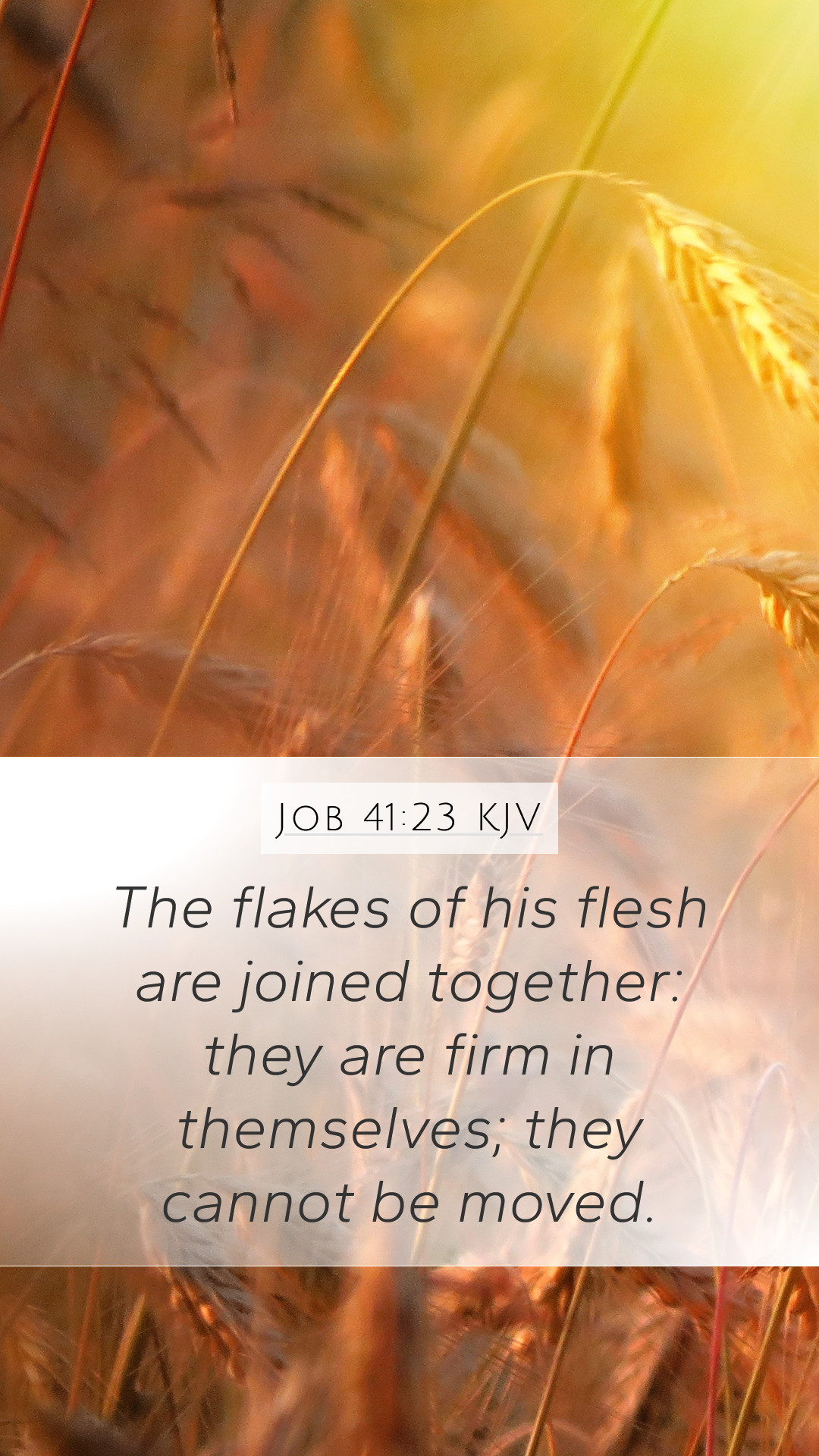Understanding Job 41:23 - A Deep Dive into Scripture
Job 41:23 states, "The flakes of his flesh are joined together: they are firm in themselves; they cannot be moved." This verse speaks of the creature Leviathan, using vivid imagery to depict its strength and impenetrability. In order to gain a clearer understanding, let us explore the insights from various public domain commentaries including those by Matthew Henry, Albert Barnes, and Adam Clarke, to uncover the deeper meanings behind this verse.
Contextual Background
In the book of Job, the text transitions into a discussion of God’s creation, specifically focusing on the formidable Leviathan. Job 41 serves as a poetic portrayal of God’s omnipotence through nature’s most fearsome creatures. This section invites readers to consider their own limitations in the face of divine power.
Commentary Insights
-
Matthew Henry:
Henry emphasizes the might of Leviathan as a representation of chaos and unfathomable strength. He notes that the creature's skin is thick and resilient, symbolizing how God's creations exist in perfect strength and serve as a testament to His power. This imagery reflects God’s ability to create beings that no human can tame, inspiring awe and reverence.
-
Albert Barnes:
Barnes highlights the literal interpretation of Leviathan as a large sea creature, possibly referring to a crocodile or a whale. He uses this discussion to illustrate God's sovereignty over all creation—nothing, not even the mightiest of beasts, can escape His authority. The firmness of Leviathan's flesh serves as a metaphor for the unyielding nature of God's decrees.
-
Adam Clarke:
Clarke elaborates on the description of Leviathan, noting that since it cannot be easily harmed or moved, it is likened to a symbol of ultimate power. He suggests that the aim of this passage may be to make Job—and by extension, the reader—realize the limitations of human strength compared to God’s unlimited might.
Theological Implications
The passage invites profound theological reflection. The imagery invokes a sense of humility, reminding believers that human wisdom and strength are minuscule in comparison to the majesty of God's creations. This perspective encourages reliance on God in all circumstances—an important theme throughout the book of Job.
Application of Job 41:23
Applying the truths found in Job 41:23 to daily life can be transformative:
- Recognizing God’s ultimate authority over life’s challenges.
- Understanding that some situations are beyond human comprehension and control.
- Finding comfort in God’s presence and power, especially during trials.
Cross References
Job 41:23 can also be linked to the following verses for a deeper understanding:
- Psalm 74:14: This passage refers to God crushing the heads of the sea monsters.
- Isaiah 27:1: Speaks to the Lord’s judgment against Leviathan, the fleeing serpent.
- Revelation 13:1: The beast that rises out of the sea can be compared to the themes of power and chaos found in Leviathan.
Conclusion
Job 41:23 serves as a sobering reminder of the strength and majesty of God's creations, capturing the fragility of human existence against such power. Through the insights of scholars and the context of the scripture, we gain a richer understanding of not just this verse, but also of the overarching themes present in the book of Job. Engaging with this scripture encourages an attitude of humility and a deeper awe for God's sovereignty.
Further Study
For those interested in a broader context or further teachings, consider engaging in Bible study groups, utilizing Bible study tools, or following online Bible study courses focusing on the Book of Job and similar texts.


